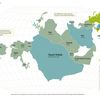Bloggar | Slóð | Facebook | Athugasemdir (0)
Bloggar | Slóð | Facebook | Athugasemdir (0)
11.6.2009 | 19:31
Vesturlönd: Búið mikið til að færa ónýtar inneignir bankakerfis yfir á pólitískar eignir þess kerfis
Bloggar | Slóð | Facebook | Athugasemdir (0)
11.6.2009 | 14:55
Olían ætti núna að vera nánast örugglega á leið í þetta $82-83
Bloggar | Slóð | Facebook | Athugasemdir (0)
11.6.2009 | 11:28
Viltu senda öllum gúmmístimplunum á álþingi skilaboð ?
Þá er ekki annað en moka eftirfarandi í "To"
atlig@althingi.is; alfheiduri@althingi.is; arnipall@althingi.is; arnij@althingi.is; arnithor@althingi.is; asbjorno@althingi.is; asmundurd@althingi.is; arj@althingi.is; birgir@althingi.is; birgittaj@althingi.is; birkir@althingi.is; bjarniben@althingi.is; bgs@althingi.is; bvg@althingi.is; ossur@althingi.is; ogmundur@althingi.is; thback@althingi.is; thrainnb@althingi.is; tsv@althingi.is; thorsaari@althingi.is; thkg@althingi.is; vigdish@althingi.is; vbj@althingi.is; ubk@althingi.is; tryggvih@althingi.is; svandiss@althingi.is; svo@althingi.is; sjs@althingi.is; skulih@althingi.is; siv@althingi.is; sij@althingi.is; sii@althingi.is; ser@althingi.is; sdg@althingi.is; marshall@althingi.is; ragnheidurr@althingi.is; rea@althingi.is; ragna.arnadottir@dkm.stjr.is; petur@althingi.is; olofn@althingi.is; olinath@althingi.is; oddnyh@althingi.is; margrett@althingi.is; magnusorri@althingi.is; liljam@althingi.is; lrm@althingi.is; klm@althingi.is; kristjanj@althingi.is; katrinj@althingi.is; katrinja@althingi.is; jrg@althingi.is; jong@althingi.is; jb@althingi.is; johanna@althingi.is; illugig@althingi.is; hoskuldurth@althingi.is; helgih@althingi.is; gunnarbragi@althingi.is; gudmundurst@althingi.is; gudlaugurthor@althingi.is; glg@althingi.is; gudbjarturh@althingi.is; eygloha@althingi.is; einarg@althingi.is
Bloggar | Slóð | Facebook | Athugasemdir (0)
11.6.2009 | 10:13
Hrun krónunnar: Icesave-ruglið hefur þegar hækkað um 50 milljarða
Ég legg til að samningsruglanda þessum verði rift og borið við hinu augljósa; heimsku og/eða heilarýrnun og spillingu undirmálsliðsins sem greinilega algjörlega vanhæft fólk sérvaldi til að klúðra enn frekar þessum ruglanda sem fjármálaeigendur fjórskipta einflokksins bjuggu til.
Það er raunar sérkennilegt að það geti hrunið í verði sem nánast er bannað að selja og vafalaust félli krónan strax um 50-80% ef viðskipti með hana væru frjáls. Kannski væri gæfulegast að láta það bara skella á og reyna þannig að finna botn sem hægt væri að vinna sig upp úr. Sem fyrr mun einflokkurinn stefna að því að teygja þennan lopa og hámarka þannig skaðann með tímanum og fyrst og fremst reyna að halda fólki sofandi á meðan restin er hirt af eigum þess.
Bloggar | Slóð | Facebook | Athugasemdir (0)
10.6.2009 | 20:02
Gold Panic Inside The Oval Office
By Bix Weir
http://www.msnbc.msn.com/id/30892505/#31073805
It was touted as an "all access" day in the life of the President but at 7:15 minutes into Part 1 Larry Summers and a man who I believe is Austan Goolsbee come into the Oval Office for a call with "the Germans". Summers is obviously on edge and shuts down the cameras when he begins to discuss the problem.
Summers: "Life has changed..ahh..since the briefing…ahh”
Obama: "For the better or for the worse?"
Goolsbee: "Net-net for the better…wouldn’t you say Larry?" (Goolsbee speaks loudly and unconvincingly for the cameras.)
Summers: “(nervous laugh)..there’s elements of both. The Germans...actually we should stop (the cameras) here."
The cameras and staff are quickly “ushered out” of the Oval Office.
For those who don’t know, Austan Goolsbee is on the Presidents Council of Economic Advisers and is touted as Larry Summers’ “Economic Internet Guru”. In that capacity there is no doubt in my mind that he monitors all the gold internet sites as well as being in charge of coordinating all the “gold disinformation” articles. Like Summers, Goolsbee believes in a kind of “Psychological Tendencies Economic Model” touting that it is perception that steers the worlds economic markets not necessarily fact. Having fought the gold manipulation battles for so long we all know perception can be managed and manipulated as I discussed in my articles “Operation Confidence Con” and “Geithner Plan=Sustained Manipulation”.
On May 28th, the night before the White House taping, Jim Willie of Goldenjackass.com posted an article called “The Hitman Cometh” where he claimed the Germans are trying to withdraw all their physical gold from US control and several “hit men” have been hired to take down the COMEX and the LME:
"The Germans have demanded that gold bullion held in US custodial accounts be returned to their owners, with physical gold shipped back to Germany ."
I'll bet my last gold Kruggie that the Oval Office phone call was a desperate plea to buy more time before the Germans destroy the physical gold manipulation scheme.
This together with rumblings of China, Russia, Saudi Arabia and Dubai scrambling to get their hands on physical gold has put the Obama Manipulation Team in major gold panic mode.
It's amazing to see these few people in the White House scrambling to prolong a failed policy of trying to manipulate the gold markets of the world.
What a sad state we find ourselves in.
Bloggar | Slóð | Facebook | Athugasemdir (0)
Guardian ... For 300 years Britain has outsourced mayhem. Finally it's coming home
Opium, famine and banks all played their part in this country's plundering of the globe. Now it's over, we find it hard to accept
Why now? It's not as if this is the first time Britain's representatives have been caught out. The history of governments in all countries is the history of scandal, as those who rise to the top are generally the most ambitious, ruthless and unscrupulous people politics can produce. Pushing their own interests to the limit, they teeter perennially on the brink of disgrace, except when they fly clean over the edge. So why does the current ballyhoo threaten to destroy not only the government but also our antediluvian political system?
The past 15 years have produced the cash-for-questions racket, the Hinduja and Ecclestone affairs, the lies and fabrications that led to the invasion of Iraq, the forced abandonment of the BAE corruption probe, the cash-for-honours caper and the cash-for-amendments scandal. By comparison to the outright subversion of the functions of government in some of these cases, the is small beer. Any one of them should have prompted the sweeping political reforms we are now debating. But they didn't.
The expenses scandal, by contrast, could kill the Labour party. It might also force politicians of all parties to address our unjust voting system, the unelected Lords, the excessive power of the executive, the legalised blackmail used by the whips, and a score of further anachronisms and injustices. Why is it different?
I believe that the current political crisis has little to do with the expenses scandal, still less with Gordon Brown's leadership. It arises because our economic system can no longer extract wealth from other nations. For the past 300 years, the revolutions and reforms experienced by almost all other developed countries have been averted in Britain by foreign remittances.
The social unrest that might have transformed our politics was instead outsourced to our colonies and unwilling trading partners. The rebellions in Ireland, India, China, the Caribbean, Egypt, South Africa, Malaya, Kenya, Iran and other places we subjugated were the price of political peace in Britain. After decolonisation, our plunder of other nations was sustained by the banks. Now, for the first time in three centuries, they can no longer deliver, and we must at last confront our problems.
There will probably never be a full account of the robbery this country organised, but there are a few snapshots. In his book Capitalism and Colonial Production, Hamza Alavi estimates that the resource flow from India to Britain between 1793 and 1803 was in the order of £2m a year, the equivalent of many billions today. The economic drain from India, he notes, "has not only been a major factor in India's impoverishment … it has also been a very significant factor in the industrial revolution in Britain". As Ralph Davis observes in The Industrial Revolution and British Overseas Trade, from the 1760s onwards India's wealth "bought the national debt back from the Dutch and others … leaving Britain nearly free from overseas indebtedness when it came to face the great French wars from 1793".
In France by contrast, as Eric Hobsbawm notes in The Age of Revolution, "the financial troubles of the monarchy brought matters to a head". In 1788 half of France's national expenditure was used to service its debt: the "American War and its debt broke the back of the monarchy".
Even as the French were overthrowing the ancien regime, Britain's landed classes were able to strengthen their economic power, seizing common property from the country's poor by means of enclosure. Partly as a result of remittances from India and the Caribbean, the economy was booming and the state had the funds to ride out political crises. Later, after smashing India's own industrial capacity, Britain forced that country to become a major export market for our manufactured goods, sustaining industrial employment here (and avoiding social unrest) long after our products and processes became uncompetitive.
Colonial plunder permitted the British state to balance its resource deficits as well. For some 200 years a river of food flowed into this country from such places as Ireland, India and the Caribbean. In The Blood Never Dried, John Newsinger reveals that in 1748 Jamaica alone sent 17,400 tons of sugar to Britain; by 1815 this had risen to 73,800. It was all produced by stolen labour.
Just as grain was sucked out of Ireland at the height of its great famine, so Britain continued to drain India of food during its catastrophic hungers. In Late Victorian Holocausts, Mike Davis shows that between 1876 and 1877 wheat exports to the UK from India doubled as subsistence there collapsed, and several million died of starvation. In the North-Western provinces famine was wholly engineered by British policy, as good harvests were exported to offset poor English production in 1876 and 1877.
Britain, in other words, outsourced famine as well as social unrest. There was terrible poverty in this country in the second half of the 19th century, but not mass starvation. The bad harvest of 1788 helped precipitate the French revolution, but the British state avoided such hazards. Others died on our behalf.
In the late 19th century, Davis shows, Britain's vast deficits with the United States, Germany and its white dominions were balanced by huge annual surpluses with India and (as a result of the opium trade) China. For a generation "the starving Indian and Chinese peasantries … braced the entire system of international settlements, allowing England's continued financial supremacy to temporarily co-exist with its relative industrial decline". Britain's trade surpluses with India allowed the City to become the world's financial capital.
Its role in British colonisation was not a passive one. The bankruptcy, and subsequent British takeover, of Egypt in 1882 was hastened by a loan from Rothschild's bank whose execution, Newsinger records, amounted to "fraud on a massive scale". Jardine Matheson, once the biggest narco-trafficking outfit in history (it dominated the Chinese opium trade), later formed a major investment bank, Jardine Fleming. It was taken over by JP Morgan Chase in 2000.
We lost our colonies, but the plunder has continued by other means. As Joseph Stiglitz shows in Globalisation and its Discontents, the capital liberalisation forced on Asian economies by the IMF permitted northern traders to loot hundreds of billions of dollars, precipitating the Asian financial crisis of 1997-98. Poorer nations have also been strong-armed into a series of amazingly one-sided treaties and commitments, such as trade-related investment measures, bilateral investment agreements and the EU's economic partnership agreements. If you have ever wondered how a small, densely populated country which produces very little supports itself, I would urge you to study these asymmetric arrangements.
But now, as John Lanchester demonstrates in a fascinating essay in the London Review of Books, the City could be fatally wounded. The nation that relied on financial services may take generations to recover from their collapse. The great British adventure – three centuries spent pillaging the labour, wealth and resources of other countries – is over. We cannot accept this, and seek gleeful revenge on a government that can no longer insulate us from reality.
http://www.guardian.co.uk/commentisfree/2009/jun/08/british-empire-colonies-banks-reform
Bloggar | Slóð | Facebook | Athugasemdir (0)
9.6.2009 | 20:16
Olían trúlega á leið í $80-90 amk.
Bloggar | Slóð | Facebook | Athugasemdir (8)
9.6.2009 | 12:43
Hrein staða við útlönd neikvæð um 4.580 ma.kr. í lok fyrsta ársfjórðungs - Seðlabankinn
1. ársfjórðungur 2009 | |||
Hrein staða við útlönd var neikvæð um 4.580 ma.kr. í lok fyrsta ársfjórðungs og réttist af um rúma 131 ma.kr. frá síðasta fjórðungi. Erlendar eignir námu 8.479 ma.kr. í lok ársfjórðungsins en skuldir 13.059 ma.kr. Vert er að geta þess að inni í tölum um erlendar skuldir eru ennþá eignir og skuldir viðskiptabankanna þriggja sem nú eru í greiðslustöðvun. Fjármögnun vanskila hefur líka haft áhrif til hækkunar á skammtímaskuldum. sedlabanki.is
|
Bloggar | Slóð | Facebook | Athugasemdir (0)
Um bloggið
Baldur Fjölnisson
Nýjustu færslur
- Torfi Stefáns bannaður ævilangt
- OL í skák. Landinn malaði Keníu í 9. umferð
- OL í skák: Landinn í 88. sæti eftir 8 umferðir
- Meðaljónar í skákinni
- Baggalútur - Sagan af Jesúsi
- Eitrað fyrir lýðnum?
- Óvenjulega döpur taflmennska innfæddra einkennir Reyjavíkursk...
- U.S. Rushes Coolant to Japanese Nuke Plant After Earthquake
Heimsóknir
Flettingar
- Í dag (25.5.): 0
- Sl. sólarhring:
- Sl. viku: 2
- Frá upphafi: 0
Annað
- Innlit í dag: 0
- Innlit sl. viku: 1
- Gestir í dag: 0
- IP-tölur í dag: 0
Uppfært á 3 mín. fresti.
Skýringar
Bloggvinir
-
 Agný
Agný
-
 Alfreð Símonarson
Alfreð Símonarson
-
 Andrea J. Ólafsdóttir
Andrea J. Ólafsdóttir
-
 Bjarni Harðarson
Bjarni Harðarson
-
 Bjarni Kjartansson
Bjarni Kjartansson
-
 Björgvin Gunnarsson
Björgvin Gunnarsson
-
 Brynjar Jóhannsson
Brynjar Jóhannsson
-
 FLÓTTAMAÐURINN
FLÓTTAMAÐURINN
-
 Eygló Þóra Harðardóttir
Eygló Þóra Harðardóttir
-
 FreedomFries
FreedomFries
-
 Fríða Eyland
Fríða Eyland
-
 Félag um stafrænt frelsi á Íslandi
Félag um stafrænt frelsi á Íslandi
-
 Georg P Sveinbjörnsson
Georg P Sveinbjörnsson
-
 Gestur Guðjónsson
Gestur Guðjónsson
-
 Gils N. Eggerz
Gils N. Eggerz
-
 Gullvagninn
Gullvagninn
-
 Gunnar Skúli Ármannsson
Gunnar Skúli Ármannsson
-
 Guðrún María Óskarsdóttir.
Guðrún María Óskarsdóttir.
-
 Gísli Hjálmar
Gísli Hjálmar
-
 Hagbarður
Hagbarður
-
 Halla Rut
Halla Rut
-
 Haraldur Haraldsson
Haraldur Haraldsson
-
 Hilmar Kári Hallbjörnsson
Hilmar Kári Hallbjörnsson
-
 Hlekkur
Hlekkur
-
 Ingibjörg Álfrós Björnsdóttir
Ingibjörg Álfrós Björnsdóttir
-
 Jens Guð
Jens Guð
-
 Jóhannes Ragnarsson
Jóhannes Ragnarsson
-
 Jón Aðalsteinn Jónsson
Jón Aðalsteinn Jónsson
-
 Jón Ragnarsson
Jón Ragnarsson
-
 Jón Steinar Ragnarsson
Jón Steinar Ragnarsson
-
 Jónína Benediktsdóttir
Jónína Benediktsdóttir
-
 Karl Tómasson
Karl Tómasson
-
 Kári Magnússon
Kári Magnússon
-
 Loopman
Loopman
-
 Magnús Þór Hafsteinsson
Magnús Þór Hafsteinsson
-
 Promotor Fidei
Promotor Fidei
-
 Rúnar Sveinbjörnsson
Rúnar Sveinbjörnsson
-
 Salvör Kristjana Gissurardóttir
Salvör Kristjana Gissurardóttir
-
 Sandra María Sigurðardóttir
Sandra María Sigurðardóttir
-
 SeeingRed
SeeingRed
-
 Sigurbjörn Friðriksson
Sigurbjörn Friðriksson
-
 Sigurjón Þórðarson
Sigurjón Þórðarson
-
 Sigurður Þórðarson
Sigurður Þórðarson
-
 Snorri Hrafn Guðmundsson
Snorri Hrafn Guðmundsson
-
 el-Toro
el-Toro
-
 Sveinn Ingi Lýðsson
Sveinn Ingi Lýðsson
-
 Tryggvi Hjaltason
Tryggvi Hjaltason
-
 TómasHa
TómasHa
-
 Túrilla
Túrilla
-
 Upprétti Apinn
Upprétti Apinn
-
 gudni.is
gudni.is
-
 haraldurhar
haraldurhar
-
 proletariat
proletariat
-
 Ívar Pálsson
Ívar Pálsson
-
 Ómar Ragnarsson
Ómar Ragnarsson
-
 Ónefnd
Ónefnd
-
 Óskar
Óskar
-
 Óskar Helgi Helgason
Óskar Helgi Helgason
-
 Óskar Þ. G. Eiríksson
Óskar Þ. G. Eiríksson
-
 Þórir Kjartansson
Þórir Kjartansson
-
 Arnar Guðmundsson
Arnar Guðmundsson
-
 Bara Steini
Bara Steini
-
 Birgir R.
Birgir R.
-
 Birgir Rúnar Sæmundsson
Birgir Rúnar Sæmundsson
-
 brahim
brahim
-
 Brosveitan - Pétur Reynisson
Brosveitan - Pétur Reynisson
-
 Bwahahaha...
Bwahahaha...
-
 Dingli
Dingli
-
 eysi
eysi
-
 Gestur Kristmundsson
Gestur Kristmundsson
-
 Guðbjörg Elín Heiðarsdóttir
Guðbjörg Elín Heiðarsdóttir
-
 Gunnar Helgi Eysteinsson
Gunnar Helgi Eysteinsson
-
 Gunnar Rögnvaldsson
Gunnar Rögnvaldsson
-
 Helgi Jóhann Hauksson
Helgi Jóhann Hauksson
-
 Hlini Melsteð Jóngeirsson
Hlini Melsteð Jóngeirsson
-
 Jakobína Ingunn Ólafsdóttir
Jakobína Ingunn Ólafsdóttir
-
 Katrín Snæhólm Baldursdóttir
Katrín Snæhólm Baldursdóttir
-
 kreppukallinn
kreppukallinn
-
 Kristín Magdalena Ágústsdóttir
Kristín Magdalena Ágústsdóttir
-
 Máni Ragnar Svansson
Máni Ragnar Svansson
-
 Morgunblaðið
Morgunblaðið
-
 Neo
Neo
-
 Orgar
Orgar
-
 Ragnar L Benediktsson
Ragnar L Benediktsson
-
 Rauði Oktober
Rauði Oktober
-
 Skákfélagið Goðinn
Skákfélagið Goðinn
-
 Sveinn Þór Hrafnsson
Sveinn Þór Hrafnsson
-
 Vilhjálmur Árnason
Vilhjálmur Árnason
-
 Þór Ludwig Stiefel TORA
Þór Ludwig Stiefel TORA




